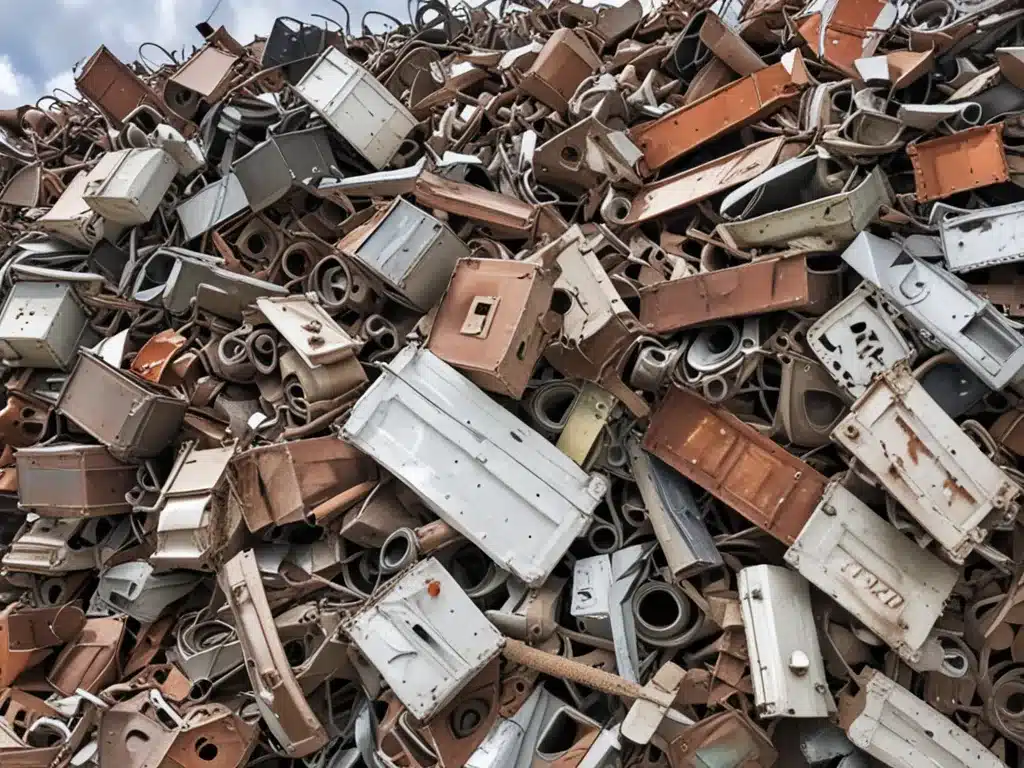Introduction
Disposing of scrap metal and white goods properly is important for environmental and safety reasons. White goods are large household appliances like refrigerators, washing machines, ovens etc. Both scrap metal and white goods contain materials that need special handling when being disposed of. Improper disposal can lead to pollution, injuries and fines. This article provides an in-depth look at best practices for scrap metal and white goods disposal.
Why Proper Disposal is Important
There are a few key reasons why properly disposing of scrap metal and white goods is essential:
Environmental Impact
Many appliances and scrap metal contain chemicals, oils and refrigerants that can leak into the ground and waterways if not handled properly. For example, refrigerators and air conditioners contain refrigerants that can deplete the ozone layer if released. Proper disposal prevents pollution.
Safety
White goods and scrap metal may have sharp edges, Freon, chemicals or other hazards. Attempting DIY disposal without proper precautions can lead to injuries. Additionally, having large abandoned appliances on a property poses risks for children and others. Proper disposal helps prevent injuries.
Compliance
There are laws and regulations around scrap metal and white goods disposal to protect the environment. Improperly disposing of appliances on a property or attempting to scrap them without following guidelines can result in fines. Proper disposal ensures you remain compliant.
Preparing Items for Disposal
Before having scrap metal and white goods hauled away, it’s important to prepare them properly:
Remove doors, lids and other detachable parts
Removing movable parts on appliances prevents children and others from getting trapped inside later. It also gives haulers easy access to remove refrigerants and fluids.
Drain all fluids
Any oils, fuels or chemicals inside appliances should be drained into proper containers first. This includes removing refrigerants from refrigerators and AC units.
Check for hazardous materials
Asbestos was commonly used as insulation in older appliances. Check for warning labels indicating its presence. Asbestos requires special handling.
Clean thoroughly
Appliances should be cleaned of any food, dirt, grease and grime before disposal. This prevents foul odors or contamination later.
Finding Reputable Scrap & Disposal Services
The key is finding qualified professionals with proper equipment and facilities to dispose of scrap metal and white goods safely.
Scrap & Recycling Centers
Many scrap yards accept appliances and metals for recycling. Contact them to ask about accepting white goods, pricing and any restrictions.
Disposal Companies
Waste management companies and junk haulers may offer appliance and scrap metal disposal. Verify they follow legal disposal methods.
Municipal Household Hazardous Waste
Some municipalities have special hazardous waste drop-off events accepting large appliances and electronics with chemicals.
Appliance Retailers
Some retailers who deliver new appliances will remove and dispose of old units directly. Ask retailers about their disposal policies.
Non-Profit Organizations
Some charities, like Habitat for Humanity, may collect old appliances and scrap to resell or dismantle for recycling.
Costs of Proper Disposal
Disposing of scrap metal and white goods properly does come with costs, which vary based on your region and hauler. Expect to pay:
- $25-$75 to have each large appliance hauled away
- Additional fees for CFC removal from refrigerators and AC units
- Lower rates per pound/ton for scrap metal recycling
- Possible extra fees for difficult removals or stairs
While not free, proper disposal costs far less than injuries, fines or environmental cleanup down the road.
Conclusion
Disposing of scrap metal and white goods requires special care to handle hazardous materials safely. By draining fluids, removing doors, and hiring reputable removal companies, you can ensure your old appliances and metals are recycled or discarded properly. Proper disposal minimizes environmental and safety risks and avoids fines for non-compliance. With some forethought and diligence, scrapping metal and white goods can be straightforward.







